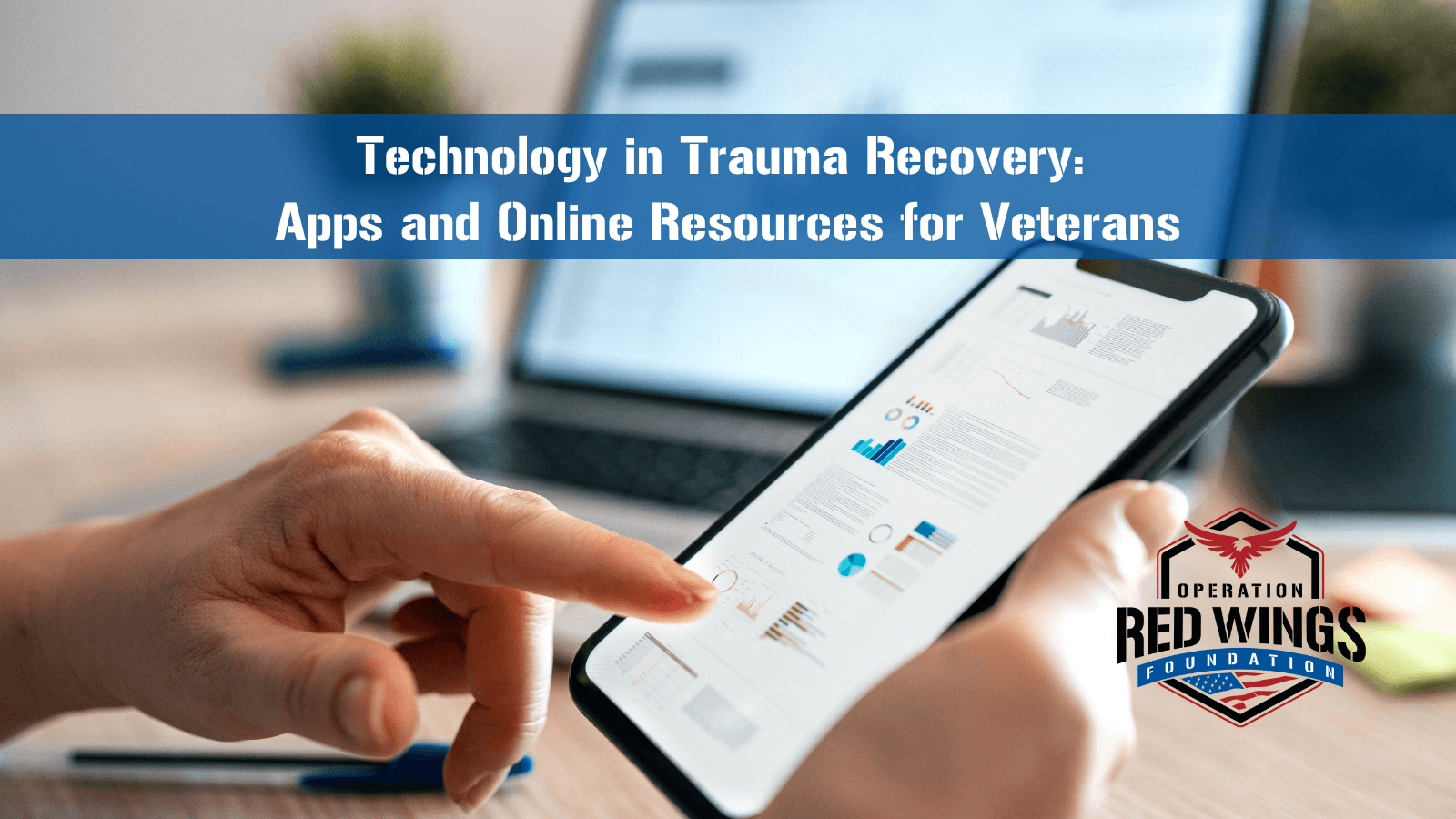Technology in Trauma Recovery: Apps and Online Resources for Veterans
In today’s digital age, technology has become an invaluable tool in various aspects of life, including mental health and trauma recovery. For Veterans navigating the complexities of post-service life, technology can offer new ways to manage symptoms, find support, and enhance overall well-being. From smartphone apps to online communities, there are numerous resources available designed specifically for trauma recovery and mental health support.
The Role of Technology in Trauma Recovery
Technology offers a variety of tools and resources that can complement traditional therapy and self-care practices. These tools can provide Veterans with easy access to support, help track progress and offer new coping strategies. Here’s a closer look at how technology can aid in trauma recovery:
- Accessibility: Technology allows veterans to access resources from anywhere, at any time. This can be especially helpful for those who live in remote areas or have mobility issues.
- Anonymity: Online platforms can offer a level of anonymity that makes it easier for individuals to seek help without the fear of stigma.
- Customization: Many apps and online resources offer personalized experiences that can be tailored to individual needs, making it easier to find effective support.
Apps for Trauma Recovery
- Headspace is a popular mindfulness and meditation app that offers guided sessions specifically designed to reduce stress and improve mental well-being. For Veterans, the app can help manage symptoms of PTSD and anxiety through mindfulness exercises and relaxation techniques.
- Calm provides a range of features including meditation, sleep stories, and breathing exercises. It’s designed to help users relax, reduce anxiety, and improve sleep, which can be crucial for those dealing with trauma.
- PTSD Coach Developed by the VA, PTSD Coach is specifically tailored for Veterans and offers resources to help manage PTSD symptoms. It includes educational materials, self-assessment tools, and strategies for dealing with symptoms and stress.
- Breathe2Relax focuses on stress management through breathing exercises. It can help Veterans learn how to control their breath to manage anxiety and improve emotional regulation.
- Wysa
Wysa is an AI-powered mental health chatbot that provides support through conversations and exercises designed to help with stress, anxiety, and depression. It’s available 24/7 and can be a helpful tool for immediate support.
Online Resources and Communities
- VA’s Mental Health Services
The VA’s website offers a wealth of resources for mental health support, including information on treatment options, support groups, and crisis intervention. Veterans can find guidance on navigating their mental health care and accessing various services. - Reddit’s r/Veterans
The r/Veterans subreddit is an online community where Veterans can share their experiences, seek advice, and support one another. It’s a space where Veterans can connect with peers who understand their unique challenges. - Give an Hour provides free mental health services to Veterans and their families. The organization also offers a directory of mental health professionals who specialize in trauma and PTSD.
- Veterans Crisis Line provides confidential support 24/7 through phone, text, and chat. It’s an essential resource for immediate help and connects Veterans to trained counselors who understand their needs.
- My HealtheVet is an online portal provided by the VA that allows Veterans to manage their health care, access medical records, and communicate with their healthcare providers. It also offers tools for tracking health progress and managing appointments.
How to Integrate Technology into Your Recovery
- Start Small: Begin by exploring a few apps or resources that seem most relevant to your needs. You don’t have to use everything at once—find what works best for you.
- Consistency is Key: Regular use of these tools can help build positive habits and support ongoing recovery efforts.
- Combine with Traditional Therapy: Technology should complement, not replace, traditional therapy and counseling. Use these tools alongside professional support for the best results.
- Engage with Communities: Participating in online forums and support groups can provide valuable peer support and reduce feelings of isolation.
Technology has the potential to significantly enhance trauma recovery for Veterans by offering accessible, personalized, and supportive tools. By integrating these resources into your routine, you can gain new strategies for managing symptoms, find supportive communities, and improve your overall mental health. Remember, recovery is a journey, and leveraging technology is just one of many tools that can help you along the way.
These are just a few of the many apps and resources available. If you have any favorites or additional tools you’ve found helpful, share them in the comments below. Your insights could help others on their journey to recovery!






